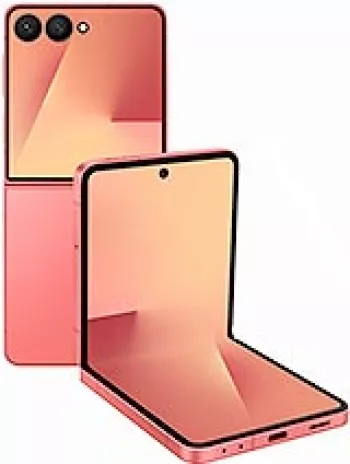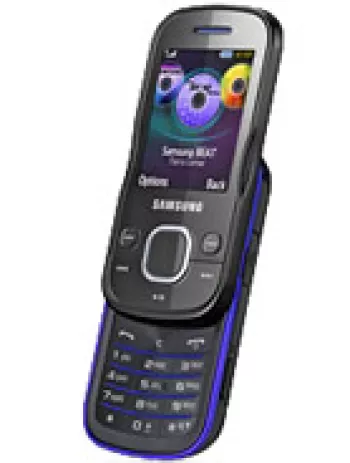
Overview of Samsung S3100
The Samsung S3100, released in September 2009, represents one of the classic feature phones from Samsung. Although it has been discontinued, it remains a notable device for those interested in the evolution of mobile technology. It was launched at a time when smartphones were beginning to rise, yet feature phones still had a significant market share, serving users who preferred simpler, more affordable devices.
Network Capabilities
The Samsung S3100 was equipped with GSM technology, which was predominant for mobile networks during that period. It supported 2G bands GSM 850, 900, 1800, and 1900, providing decent coverage options for voice calls and text messaging, despite the absence of 3G or 4G LTE support. GPRS and EDGE technologies were used for basic mobile internet browsing, class 10 in both, which was standard for feature phones at the time.
Design and Build
The phone features a compact and lightweight design with dimensions of 95 x 47 x 14.9 mm and a weight of 99.2 grams. It was designed with a mini-SIM slot and had a robust and simplistic aesthetic typical of early mobile devices. The device came in two colors: Black and Pink, catering to users who desired a bit of personalization in their gadgets.
Display
With a 2.1-inch TFT display capable of showing 256K colors, the Samsung S3100 wasn't designed for extensive media consumption but rather for essential communication tasks. The screen had a resolution of 176 x 220 pixels with a pixel density of approximately 134 ppi, which was adequate for reading text and viewing simple images.
Memory and Storage
The phone came with an internal storage capacity of 15MB, a minimal amount by today’s standards but sufficient for storing essential contact information and messages. Additionally, it featured a microSDHC card slot allowing expansion of storage, which was a valuable feature for those wanting to keep extra media files like photos and music on hand. The device supported up to 1000 contacts in the phonebook along with a photo call feature.
Camera Features
On the multimedia front, the Samsung S3100 offered a 1.3 MP single main camera, which could capture basic images and videos. While lacking the sophistication of modern smartphone cameras, it was sufficient for casual photography at that time. However, the device did not feature a selfie camera, which aligns with the focus on simplicity and essential functionalities.
Audio and Connectivity
The audio features included a loudspeaker, but no 3.5mm headphone jack, which slightly limited audio accessory compatibility. Connectivity options included Bluetooth 2.1 with A2DP for wireless audio streaming. Although the phone did not support WLAN, the inclusion of FM radio with RDS provided an alternative for music and news consumption. The device also featured USB 2.0 for data transfer and charging purposes.
Software and Features
The Samsung S3100 was a classic feature phone and did not run on any smartphone operating system, rather it had proprietary Samsung software allowing basic functions like messaging (SMS, MMS, and Email), as well as a WAP 2.0/xHTML browser for minimal web surfing. The phone included games and supported downloadable games and applications via Java MIDP 2.0, offering simple entertainment options.
Battery Life
The device was powered by a removable Li-Ion 800 mAh battery, providing up to 490 hours of standby time and up to eight and a half hours of talk time. This level of battery performance was quite effective for a feature phone, making it suitable for all-day use without frequent charging, especially given the lower power demands compared to modern smartphones.
Miscellaneous Features
The Samsung S3100 was available in classic colors, appealing to a broad range of users with different tastes. It had a specific absorption rate (SAR) of 1.31 W/kg for the head and 0.45 W/kg for the body, which was within acceptable limits for mobile safety standards at that time. Priced at approximately 70 EUR, it was positioned as an affordable option for users seeking reliability without sophisticated features.
Conclusion
In summary, the Samsung S3100 was a reflection of its time, providing essential mobile functionalities wrapped in a durable and user-friendly package. As smartphones began to dominate the market, feature phones like the S3100 served as practical devices for users who desired straightforward communication tools without the complexity of more advanced technology.
Key Features of Samsung S3100
- GSM Technology supported with 2G bands (GSM 850/900/1800/1900)
- Lightweight design weighing 99.2 g (3.49 oz)
- Compact dimensions: 95 x 47 x 14.9 mm
- 2.1-inch TFT display with 256K colors
- Expandable storage via microSDHC card slot
- 1.3 MP main camera with video recording capability
- FM radio with RDS for listening to your favorite stations
- Bluetooth 2.1 with A2DP
- Removable Li-Ion 800 mAh battery with up to 490 hours standby time and up to 8 hours and 30 minutes talk time
- Affordably priced at around 70 EUR
Samsung S3100 Key Disadvantages
- Discontinued model, no longer officially supported.
- Lacks modern connectivity options such as WLAN and GPS.
- Low-resolution display with only 176 x 220 pixels and 134 ppi density.
- Limited internal storage capacity of 15MB.
- Basic 1.3 MP main camera, lacking advanced features.
- No selfie camera available.
- No 3.5mm headphone jack for audio output.
- Relatively small 2.1-inch display that may not suit all users.
- Bluetooth version 2.1, which provides slower data transfer compared to newer versions.


View Also
More Phones
All Rights Reserved +14266 Phones © Mobilawy 2025

























